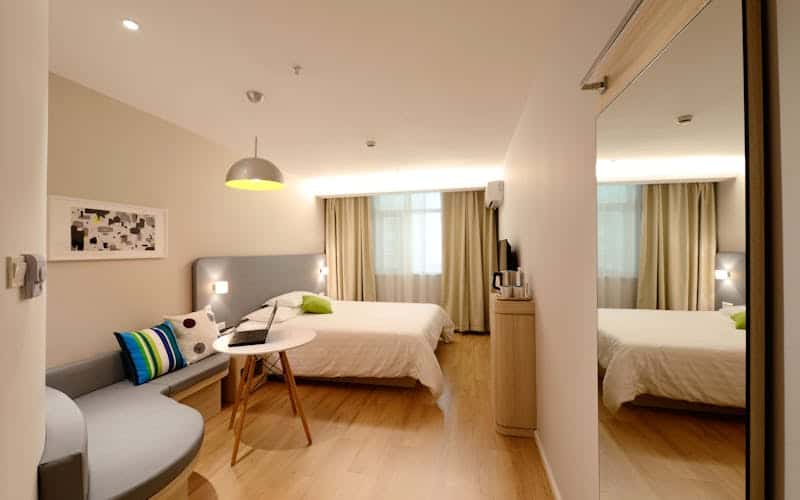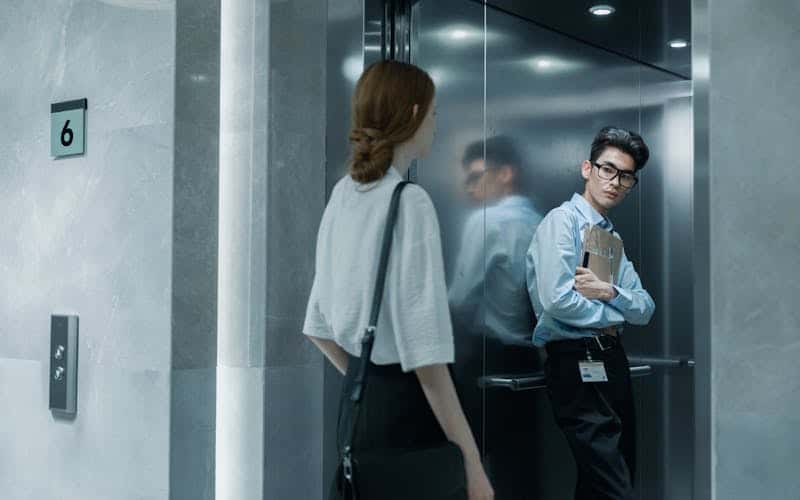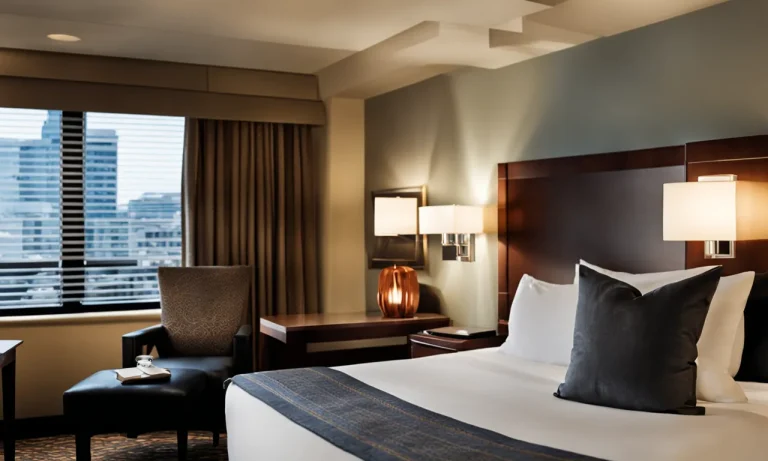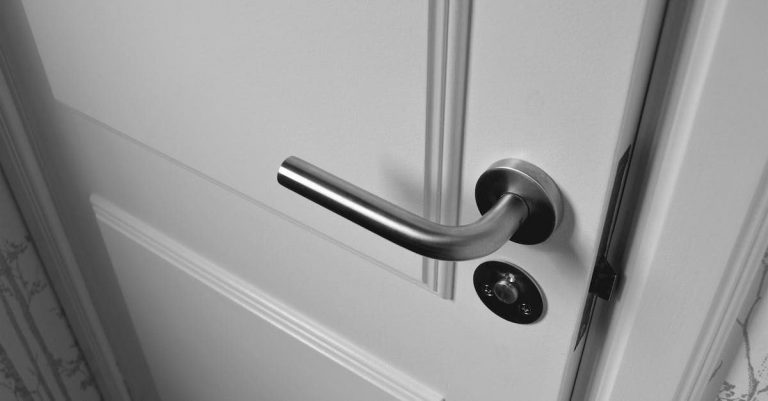Are you planning your next hotel stay and wondering whether to opt for a room on the top or bottom floor?
If you’re short on time, here’s a quick answer to your question: It depends on your personal preferences and needs. Neither the top nor the bottom floors of hotels are inherently “better”.
In this article, we will explore the pros and cons of staying on the top and bottom floors of hotels, and help you decide which option is best for you.
The advantages of staying on the top floors
When it comes to choosing a hotel room, one of the most important decisions you will make is what floor to stay on. While staying on the bottom floors has its perks, there are many advantages to staying on the top floors. Here are just a few:

Better Views
One of the biggest advantages of staying on the top floors of a hotel is the view. Whether you are staying in a city or by the beach, being up high can offer you stunning views that you wouldn’t be able to get from the lower floors.
Depending on the location and layout of the hotel, you may be able to see breathtaking sunsets, beautiful skylines or even stars at night.
Less Noise
Another benefit of staying on the top floors is that there is generally less noise. You won’t have to worry about hearing people walking around in the room above you, or the noise of street traffic outside.
Being up high can also provide a sense of peace and quiet that can be difficult to find in the hustle and bustle of a busy city.
More Privacy
If you value your privacy, then the top floors of a hotel may be the best choice for you.
While you may have to deal with the occasional passerby, staying up high can offer you a sense of seclusion that you wouldn’t get from the lower floors. Plus, you won’t have to worry about people peering into your room from the street or other nearby buildings.
The disadvantages of staying on the top floors
While staying on the top floors of a hotel may seem like a luxurious experience, there are several drawbacks to consider before booking your room. Here are some of the disadvantages:
Longer Wait Times for Elevators
One of the biggest disadvantages of staying on the top floors of a hotel is the longer wait times for elevators. With more guests needing to reach the higher floors, the elevators can become crowded and slow. This can be especially frustrating during peak times, such as check-in and check-out.

Higher Prices
Another disadvantage of staying on the top floors is the higher prices. In many hotels, rooms on higher floors are considered premium rooms and are priced accordingly. This means that you may end up paying more for the same room if it is located on a higher floor.
Potential for Motion Sickness
Staying on the top floors of a hotel can also increase your risk of experiencing motion sickness. The higher you are, the more you will feel any movement of the building, such as swaying or vibrations from nearby construction. This can be particularly problematic for individuals who are prone to motion sickness.
Overall, while staying on the top floors of a hotel may offer some stunning views, it is important to consider the potential drawbacks before making your reservation.
The advantages of staying on the bottom floors
Quicker access to the lobby
One of the most significant advantages of staying on the bottom floors of hotels is the quicker access to the lobby. This is especially helpful for those who are in a hurry or have a lot of luggage to carry.
With fewer floors to navigate, you can easily get to the lobby and out of the hotel in a shorter amount of time.

Less expensive prices
Another advantage of staying on the bottom floors is that they are often less expensive than rooms on higher floors. This is because rooms on higher floors often come with better views, which can drive up the price. If you’re looking to save money on your hotel stay, opting for a room on the bottom floor might be a good option for you.
Less motion sickness
For those who suffer from motion sickness, staying on the bottom floors can be a lifesaver. Higher floors can often sway or move more during high winds or storms, which can exacerbate motion sickness symptoms. Staying on the bottom floor can help minimize these effects and make your stay more comfortable.
The disadvantages of staying on the bottom floors
More Noise from Street Level
One of the biggest disadvantages of staying on the bottom floors of a hotel is the noise level. Since these rooms are closer to the street, guests are more likely to be disturbed by traffic noise, sirens, and other outside sounds. Even if your hotel is located on a quiet street, you may still hear noise from the lobby or other common areas.
Lack of Privacy
Privacy is another concern when staying on the bottom floors. Guests on these floors may have to contend with people walking past their windows or looking in. Additionally, rooms on the lower floors are more susceptible to theft or break-ins since they are easier to access from the street.
Worse Views
Finally, guests on the bottom floors may miss out on some of the best views that a hotel has to offer. Rooms on higher floors generally offer better views of the surrounding area and provide a more scenic experience. If you’re looking for a nice view, it’s best to stay on a higher floor.
While staying on the bottom floors may be more convenient for some guests, it’s important to keep in mind the potential drawbacks. If you’re looking for a quieter, more private, and scenic experience, it’s best to stay on a higher floor.
Factors to consider when choosing a hotel room floor
When it comes to choosing a hotel room, one of the factors you may need to consider is which floor to stay on. While some people may prefer the top floor for the view, others may prefer the bottom floor for easy access to amenities. Here are some factors to consider when choosing a hotel room floor:
Purpose of your trip
The purpose of your trip can influence which floor you choose. If you are on a business trip and need to be up early for meetings, staying on a higher floor may not be the best option if the hotel has a noisy rooftop bar.
On the other hand, if you are on a vacation and want a quiet and peaceful stay, it may be better to choose a higher floor away from the noise of the street.

Mobility and accessibility needs
If you have mobility or accessibility needs, the floor you choose can significantly impact your comfort. If you have difficulty climbing stairs or using elevators, staying on the ground floor may be the best option.
Alternatively, if you are in good health and prefer a workout, staying on a higher floor with stairs can be an excellent way to get some exercise. Some hotels also offer rooms with accessibility features like grab bars, which are usually located on the first few floors.
Personal preferences and priorities
Finally, your personal preferences and priorities should also be taken into account when choosing a hotel floor. If you value privacy, a higher floor may be the best option since it’s less likely to be disturbed by foot traffic or outside noise.
If you are traveling with children, staying on the ground floor can be more convenient, especially if you need to get in and out of the hotel quickly.
It’s important to note that some hotels may charge a premium for rooms on higher floors, while others may offer better rates for ground floor rooms. Be sure to check with the hotel before booking to find out if there are any differences in price based on the floor you choose.
Conclusion
In conclusion, both the top and bottom floors of hotels have their advantages and disadvantages. The choice ultimately depends on your personal preferences and needs.
If you prioritize views, privacy, and quiet, the top floors may be your best bet. If you prefer quick access to the lobby and lower prices, the bottom floors may be the way to go.
Consider the factors we’ve outlined in this article when choosing your hotel room floor, and don’t be afraid to ask for specific requests when making your reservation. Happy travels!






